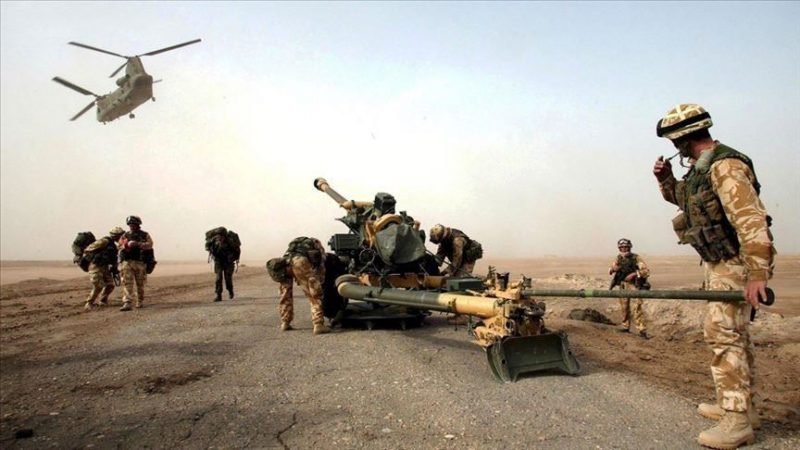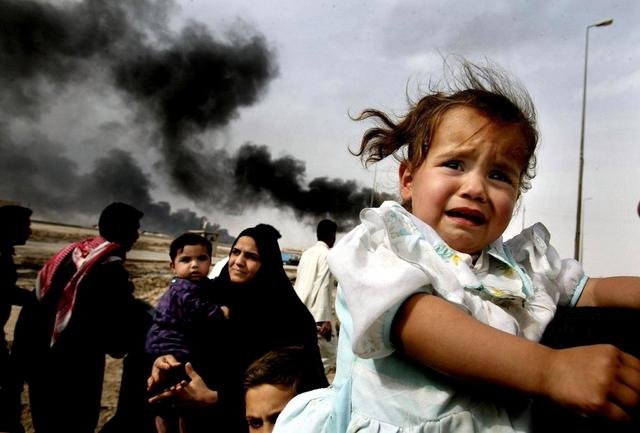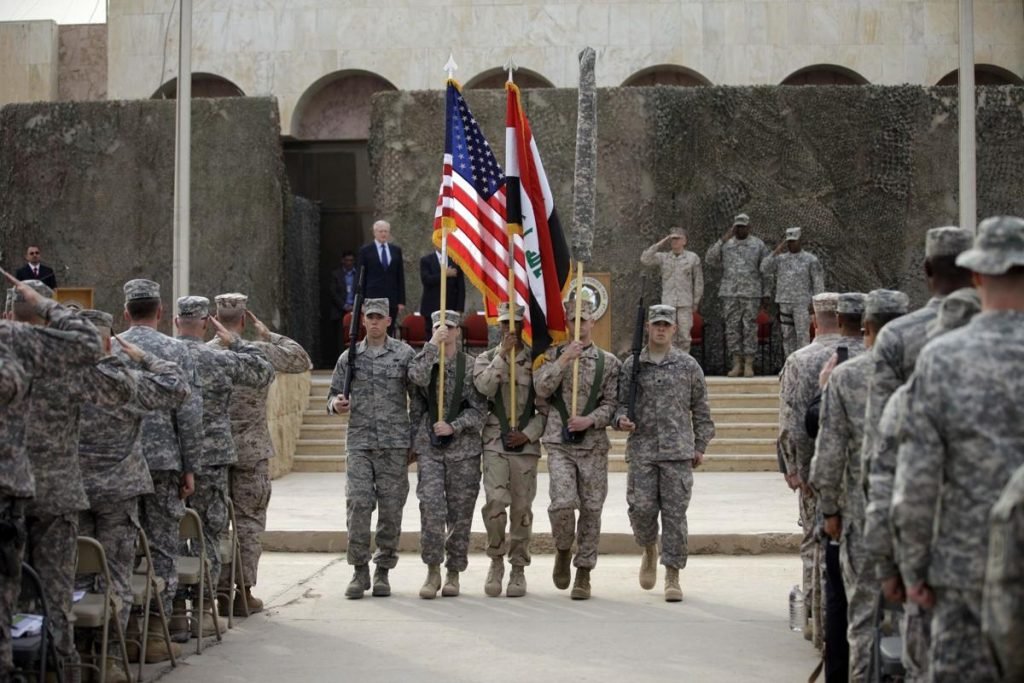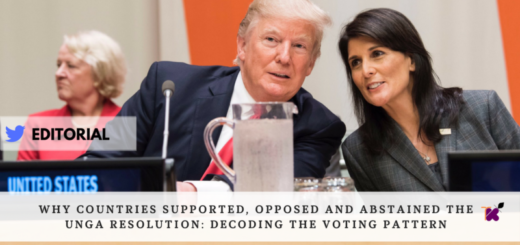Human Rights Violation by the US during Iraq Invasion

Human rights, the concept has been as old as human civilizations. Numerous codifications and organizations have been formulated and established to prevent human rights violations during the conflict. However, the big question is the execution, how well the global community has been able to execute these conventions? In the 21st century, we have seen the growing concern for Human rights and awareness for protection. Ironically, most of the time, the most aware societies have been looting human resources—for example, indiscriminate killing of civilians and inhumane treatments to detainees and civilians in Iraq by US forces. Also, the crimes against humanity during World War II by German and Japanese troops gave birth to the notion of “war crimes”.
This paper focuses on human rights violations by the US during the eight-year occupation from 2003 to 2011 in Iraq with the lens of International Law. In this paper, I will broadly cover the four aspects of Human rights violation in Iraq, (a) Violation of women’s rights, (b) Violation of children’s rights, (c) Violation of Internally displaced people’s and refugee’s rights and (d) Violation of civilians’ rights—the mass killing of individuals and by incendiary weapons. Each section will be analyzed through a separate case study, and ultimately, in conclusion, we will try to assess whether the US was held accountable for the committed war crimes.
Violation of women’s rights
The status of Iraqi women before the occupation was considered one of the strongest across the entire region. They were placed on high ranks in academia, law, medicine and government[1]. However, the war made them deprived of their pre-war status and made them vulnerable and the weakest across the region. They were raped, taken hostages, and not safe in their own homes.
Taking Hostages:
Women were taken hostages to blackmail their respective male representatives into surrendering or confessing their crimes. The US army used to forcefully take mothers, sisters, and wives to get their sons, brothers, and husbands to surrender[2]. On the contrary, forceful confessions and taking hostages are opposite what The Geneva convention says. Article 33 of the Geneva Convention IV clearly states, “no one can be punished for an offence he or she has not personally committed[3].” Article 14 of the Geneva Convention III says, ‘Women shall be treated with all the regard due to their sex and shall in all cases benefit by treatment as favourable as that granted to men”[4]. It also breaches Article 3 of the convention, prohibiting coercive methods to obtain information from the protected person.
Rapes and murders:
Mahmudiya Incident (Case study)
During the US occupation, the condition of women was very fragile and vulnerable. While on their search operations, US Army used to enter houses without permission. Raped women, humiliated in front of the families. Mahmudiya case was one of the exemplary cases of the crime by US army men. In March 2006, Steven D Green, with his other soldier friends in causals and masks on, broke into an Iraqi home, where they raped 16 years old Abeer Kassem Hamza al-Janabi. Then he shot her father, mother and six-year-old sister. Afterwards, Hamza was burnt alive. Although all the people involved were convicted in military court, no death penalty was announced[5]. Hamza’s uncle claimed if non-US people did it, the whole world would kill them; also, her grandmother said, ‘I will hate American soldiers until I go to my grave.’[6]
This incident clearly violated Article 27 of The Vienna Convention IV that prevents crimes against women during wars. It states, “a Convention IV that ensures protection of women in warfare. It states, ‘Women shall be especially protected against attack on their honour, in particular, against rape, enforced prostitution, or any form of indecent assault”[7]. Article 7 and 8 of The Rome Statute of ICC also consider rapes and forced pregnancy a crime against humanity.

Violation of Children’s rights
Violation of children’s rights during the US- occupation was a key highlight. Children were abused in different manners- in juvenile prisons and were deprived of fundamental economic, health and education benefits.
An unspecified number of children were put in juvenile prisons of Baghdad. They were sexually abused, beaten up with harsh methods, and forced to confess their crimes without a fair trial. For example, a 12-year-old boy was forcibly arrested, and then his sister was pressured to ask his brother to confess accepting his link with Al Qaeda. Afterwards, he was sent to a camp in Bucca for further interrogation, where electric cables beat him up and hung up on the ceiling[8]. The UN Committee on the Child also claimed that children were exploited by the US army at their convenience to get a false confession from their parents.
The United Nations Educational Scientific, Cultural Organization (UNESCO) ‘s report indicated that pre-occupation attendance was 100%. However, the post-occupation scenario was the opposite. Due to the continuous bombardments, they killed the educators and destroyed the infrastructure. This disastrous situation led to either youngsters dropping their education or flying abroad[9]. Almost all the schools were in the main cities, which were destroyed, and The Anbar University was occupied by the US any while their military operations[10]. In May 2006, United Nations Children’s Fund highlighted how one-third of the children were deprived of sufficient food in their households[11]. The Iraqi government in 2005 also calculated how approximately half of the Iraqi children suffered from malnourishment, and one out of ten suffered from chronic diseases[12]. Iraqi children were found experiencing phycological traumas because of the explosions, kidnapping and abuse. Children’s misery is a significant breach of Geneva Convention IV Articles 14, 24 and 50, which promise special care for children in the areas of education, health, religion, and other cultural activities. The UN Convention on the Rights of the Child’s Article 2 also applies.
States must ensure that children are protected from all forms of prejudice and punishment based on the child’s religion, culture, and parents’ beliefs. Their dignity and respect should not be jeopardized in any way. Article 77 and 78 under Additional Protocol I emphasizes that children under the age of fifteen should be safeguarded from all forms of harm. Indecent assault is a crime that is punishable by law. They should be honoured and treated with exceptional care. In the event that children are evacuated from combat zones, their needs will be met. Education and religion should be pursued in accordance with their parent’s wishes.[13]

Violation of Internally Displaced People and Refugee’s rights
After Palestine’s 1948 mass departure, Iraq has experienced the largest displacements in the Middle east. According to UNHCR, 20% of the IDPs and 5% of returned families reported cases of missing children and family members. After Palestine’s 1948 mass departure, Iraq has experienced the largest displacements in the Middle east. According to UNHCR, 20% of the IDPs and 5% of returned families reported cases of missing children and family members.[14] Due to a lack of security and necessary basic facilities like water, electricity, and sanitation.[15]
However, Articles 73 and 74 of additional protocol I of the convention states that the authority is responsible for protecting and taking care of refugees without discrimination. And for IDP, the protocol asks the authority to encourage them to reunite with their dispersed families during the war.[16] The 1951 United Nations Convention on the Status of Refugees and the 1967 Protocol Relating to the Status of Refugees guarantee refugee protection worldwide.
Violation of civilian rights
In the Iraq war, the most who suffered were civilians. They were killed individually by the US army and collectively by incendiary weapons. The ‘Fallujah slaughter and the ‘Haditha’ and ‘Nisour Square carnages, among other occurrences, are used as litmus tests for violations of civilian rights by the United States.
[1] See Ghali Hassan’s “Iraqi Women under US Occupation”, http://globalresearch.ca/articles/HAS505A.html
[2] “US accused of seizing Iraqi women to force fugitive relatives to give up”, The Guardian 11 April.2005
[3] Frequently asked questions on the rules of war …. https://www.icrc.org/en/document/ihl-rules-of-war-FAQ-Geneva-Conventions
[4] OHCHR | Treatment of Prisoners of War. https://www.ohchr.org/EN/ProfessionalInterest/Pages/TreatmentOfPrisonersOfWar.aspx
[5] See”Rapist bragged about deed” The Straits Times , 29 April 2009 , also ‘A Soldier’s shame’ 9 July,2006 Times Magazine
[6] www.dailymail.co.uk/news/article-1186595/U-S-soldier-raped-14-year-old-Iraqi-killed-family-spared-death-sentence.html
[7] Customary IHL – Practice Relating to Rule 93. Rape and …. https://ihl-databases.icrc.org/customary-ihl/eng/docs/v2_rul_rule93
[8] www.theguardian.com/world/2008/sep/08/iraq.humanrights
[9] www.globalresearch.ca/violations-of-iraqi-children-s-rights/18205
[11] Food Insecurity in Iraq persists: Children suffer’, UNICEF report, 11 May 2006
[12] ‘WarCrimes Committed by the US in Iraq and Mechanisms for Accountability
[13] ihl-databases.icrc.org/applic/ihl/ihl.nsf/
[14] ‘Fallujah refugees estimated at 2,50,00’ The Seattle Times, 21July 2012
[15] /reliefweb.int/sites/reliefweb.int/files/resources/Full_Report_660.pdf
[16] ihl-databases.icrc.org/applic/ihl/ihl.nsf/


















